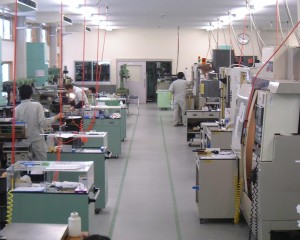 Although engineering plastics are generally more expensive to produce than commodity plastics such as polystyrene, they tend to be stronger overall and possess better mechanical and thermal properties. Here are some of the advantages that engineering plastics have over other materials such as metal.
Although engineering plastics are generally more expensive to produce than commodity plastics such as polystyrene, they tend to be stronger overall and possess better mechanical and thermal properties. Here are some of the advantages that engineering plastics have over other materials such as metal.
Engineering plastics have become much more commonplace in the manufacturing industry over recent years, due to possessing a number of advantages over other materials. This is particularly true when it comes to metal. Indeed, engineering plastics have replaced metal in the manufacture of many different products.
1. Lower Production Cost
Although, as already mentioned, engineering plastics can be a little more expensive to produce than commodity plastics, when it comes to a cost comparison with metal, an engineering plastic will come out on top every time. Plastics are much easier to manufacture than metal, particularly when it comes to complicated shapes. This leads to a lot less wear on machinery, therefore prolonging the life of cutting tools and saving money in the long-run. With metals seemingly forever rising in price, engineering plastics will always provide a more cost-effective solution.
2. Robust and Hard-Wearing
While each engineering plastic has qualities unique to itself, the majority of them are of a highly robust and hard-wearing nature. Compared to metal, engineering plastics are superior when it comes to chemical and corrosion resistance, making them an attractive proposition to manufacturers. Often, plastic can last up to ten times longer than metal when it comes to wear and tear. Many engineering plastics, such as peek plastic for example, maintain this chemical and corrosion resistance even at very high temperatures. Due to its highly robust nature, peek is often used in the manufacture of particularly demanding products such as bearings, pumps, piston parts and cable insulation.
3. Health and Safety Positives
One of the areas that is often overlooked when it comes to using engineering plastics over metals in the manufacturing industry is that of health and safety. The issue of excessive noise in a manufacturing plant can often be a contentious one but, by using plastics instead of metal, this noise can often be dramatically reduced. This is due to engineering plastics being a very effective ‘noise dampener’.
Plastics are also much less weighty materials than metals, although most forms of plastic still manage to beat their metal counterparts when it comes to overall strength and durability.
With the advantages of engineering plastics far outweighing that of metal, it is still quite surprising that more manufacturers are not using plastics in their manufacturing processes. Perhaps this is due to the huge array of engineering plastics that exist. Anyone who is not familiar with the variety of engineering plastics and which type is suitable for a particular job, may be reluctant to move over to plastic in their general production process. However, by consulting with a reputable plastics distributor, this need not ever be an issue. Engineering plastics have so many advantages over other materials, it seems a waste not to use them in the manufacturing process.
AUTHOR BIO
Andrew Tho is a freelance writer who specialises in engineering and building related articles. He is an expert in internationally recognised quality peek plastic and has written for a number of websites and blogs, in addition to printed publications.

